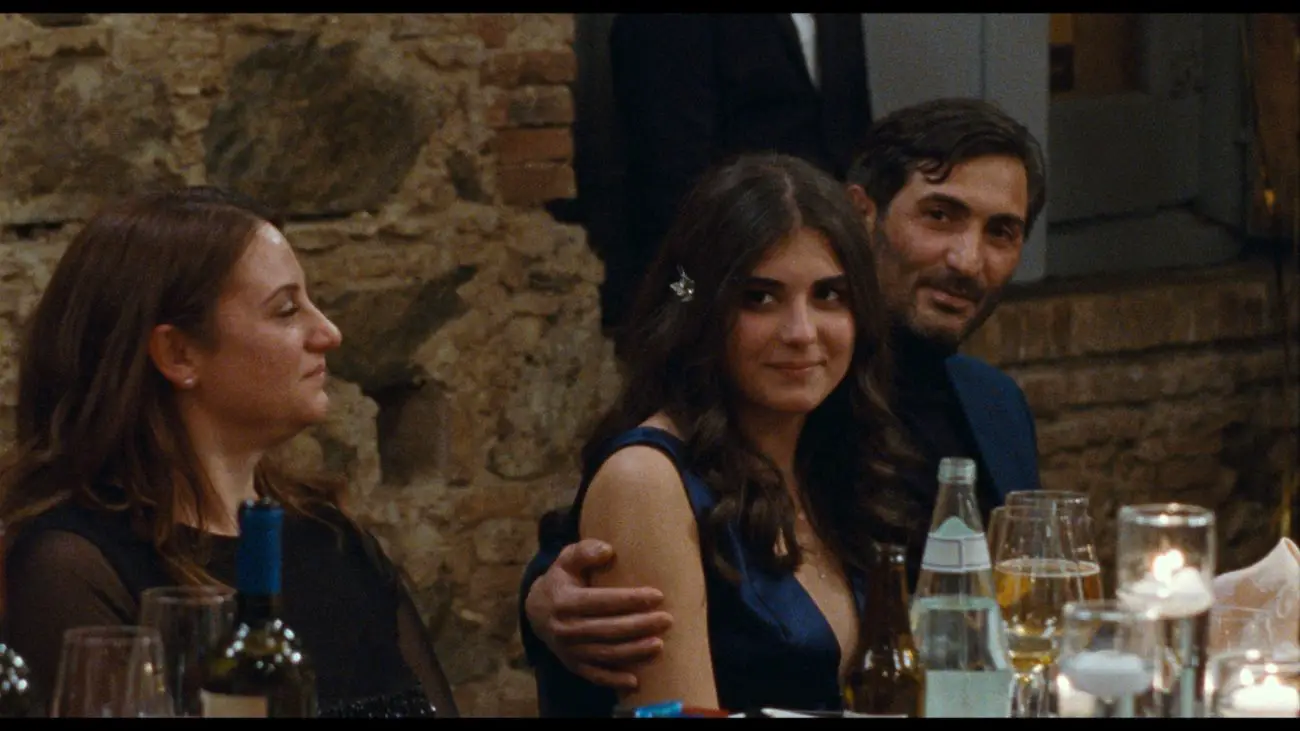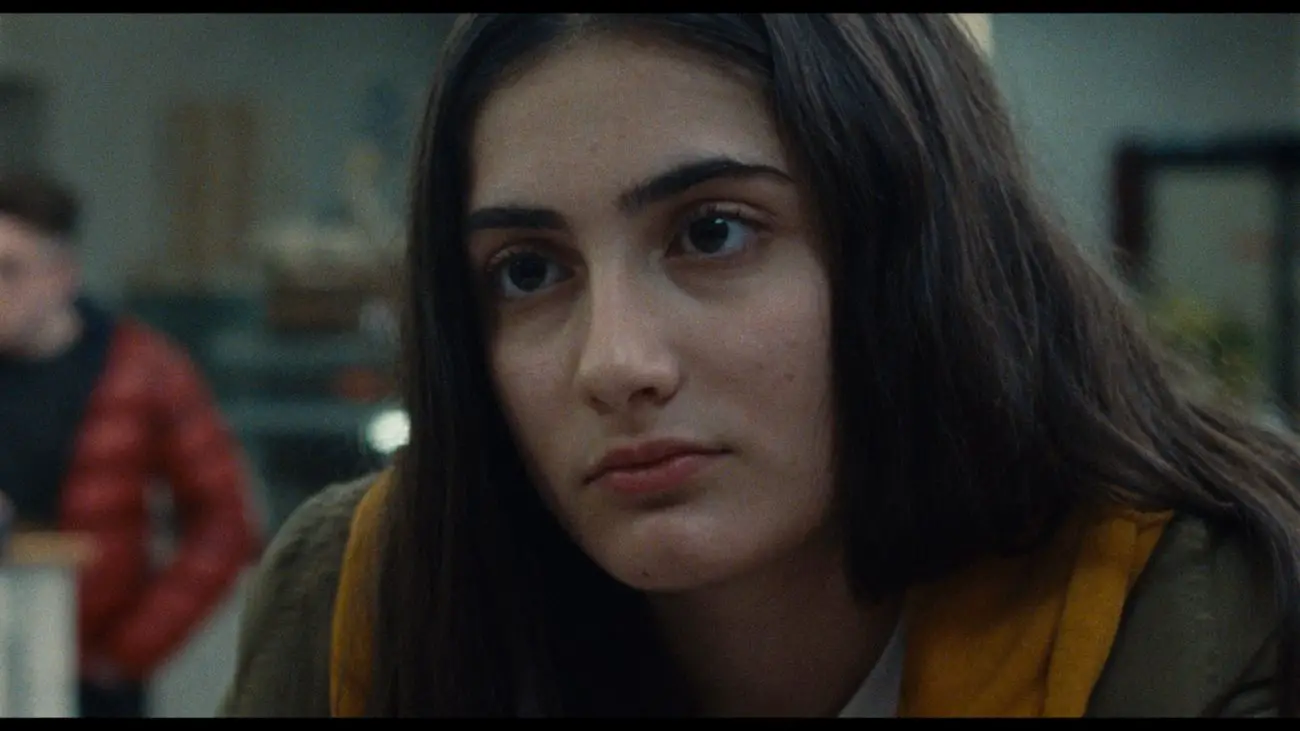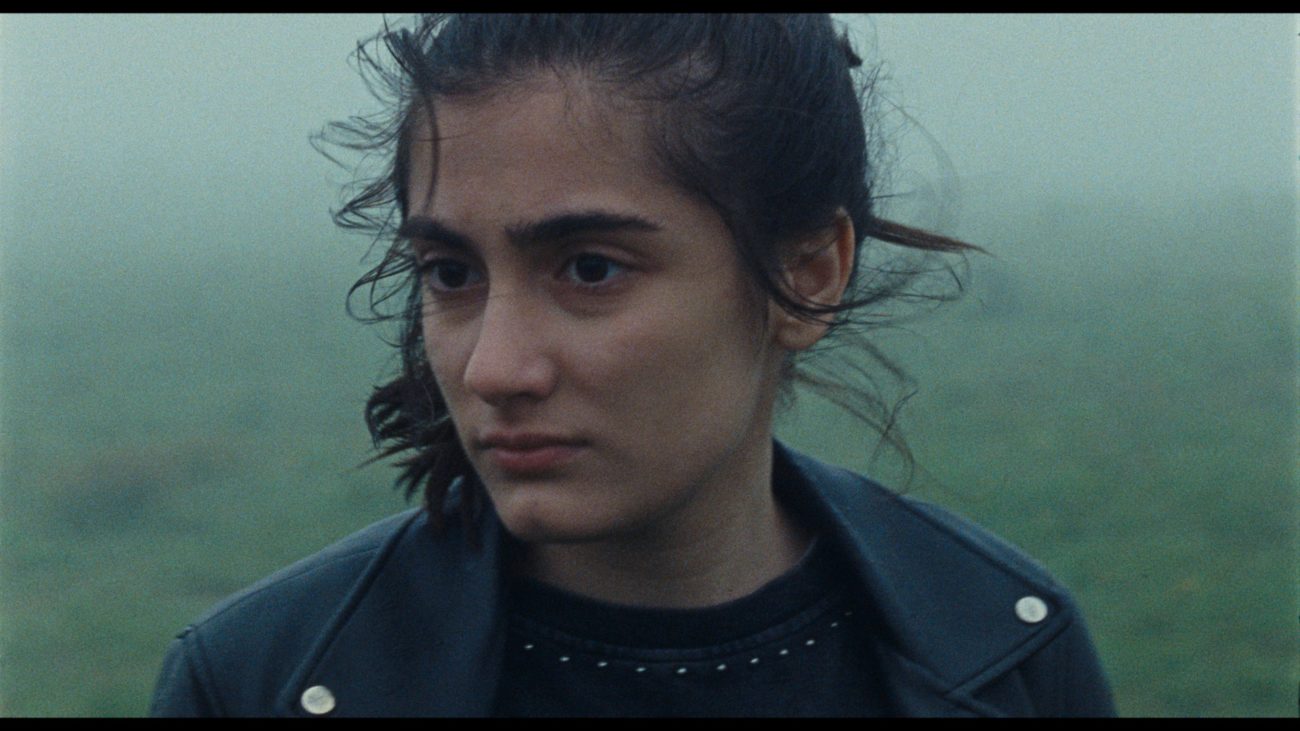Having debuted last year at Cannes to excellent reviews, this week A Chiara arrives in select North American theaters. Written and directed by Jonas Carpignano, A Chiara is the third of his films to examine, from highly subjective and personal perspectives, the subcommunities of Gioia Tauro, Calabria: where his earlier Mediterranea (2015) and A Ciambra (2017) focused on the African and Roma subcommunities there, A Chiara takes as its subject the “Malavita,” the families involved in the underground mafia known as the ‘Ndrangheta. Named for its protagonist, a teenage daughter confronted with the truth of her family’s criminality, A Chiara depicts a dark, riveting rite of passage.
Chiara, age 15, is the younger sister to Giulia, whose 18th birthday is being celebrated at a large gathering with family and friends. The two girls and their family enjoy a close, if sometimes contentious, relationship. At the party, a few ominous-looking strangers appear on a business call; the girls’ father, Claudio, seems unnerved by their presence. Later, he adamantly refuses to toast Giulia’s birthday. He’s not one, he says “to stand up and speak out.”

After the party, Chiara witnesses her father fleeing as a car explodes on the street. And the next day, he has disappeared. The mother, Carmela, acts oblivious to the mystery and violence, explaining away his typical “taking care of business.” But Chiara is deeply suspicious. A news report of Claudio’s illicit activity and a secret passageway in their home compound her growing suspicions—and her resolve to discover the truth. That secret passageway, leading underground to a hidden bunker of labyrinthine tunnels and escape routes, serves as a metaphor for Chiara’s own journey to adulthood.
For a time, then, as Chiara abandons the carefree sundries of her oblivious teen life—workouts, socials, school—A Chiara becomes a detective story. Chiara is brave and indefatigable, her quest for the truth motivated in part by her love for her father and in part by her own determination. Her investigation leads to family ties to a mafia underworld. And it puts her in physical risk, not only for her own safety, but also for her relationship with her own family.

The Calabria mafia, the ’Ndrangheta, is one based solely on blood ties. Tracing back centuries and comprised strictly of a loose network of ‘ndrina, or familial clans, the ’Ndranghetisti take in a reported US$60 billion annually through drug trafficking and money laundering. Family ties prevent infiltrators and traitors: no one turns against their own family. To weaken their power, the Calabrian authorities have placed some mafia families’ children in foster care, and Chiara faces this very situation. Is her predicament so precarious it warrants removing her from her family’s custody, resettling her far away from their criminal influence?
Rather than present plot points like these melodramatically, Carpignano and his team opt for a quiet, naturalistic, ambient approach. Tim Curtin’s hand-held camera is almost always, it seems, just a few feet from Swamy Rotolo as Chiara, following her as she exercises, socializes, and later, investigates. (The subjective, dynamic approach is the polar opposite of a film like Gamak Ghar’s unmoving, omniscient frame.) Without voice-over or an over-reliance on point-of-view shots, it’s as first-person an approach to cinematic narrative as imaginable, and the result is that viewers know only what Chiara knows—and no more. We’re left to consider her father’s complicity in the mafia’s crimes just as Chiara is, and largely from her perspective.
Benh Zeitlin and Dan Romer’s soundtrack further aligns viewers’ perspective with Chiara’s emotions. From Italian trap to Ed Sheeran ballads, diegetic pop music creates an aural soundscape of what girls like Chiara listen to, and the subtle score evokes Chiara’s intense emotional states without hyperbole or melodrama. The result is a coming-of-age film that hews closely to the protagonist’s perspective. Is Chiara’s family to be trusted? Is their lifestyle legitimate? Is she to follow in its footsteps, or simply to protect their anonymity? And when a social worker intervenes, is the alternative she presents viable?
Wedding the narrative structure of the investigation to thematics of the coming-of-age film, A Chiara eventually takes its protagonist to a crossroads where she must choose one life or another. Chiara is an indefatigable detective, and her steely will means she won’t be denied. And she won’t let anyone—from her parents to the mafia to social services—determine her fate for her. Neither the state nor the ‘Ndrangheta is made into a cartoon villain. (In fact, since the mafia’s reputed violence rarely appears onscreen, one might conclude Carpignano lets them off the hook.) They’re presented merely as Calabrian matters of fact, two opposing alternatives many in Gioia Tauro might face.

Which, of course, for Chiara, they are. Her portrayer, Swamy Rotolo, with her broad, dark eyes and penetrating gaze, has a difficult task: as the protagonist and point-of-view character, she is onscreen for nearly every second of A Chiara. A scene where she tosses a firecracker at a group of rivals illuminates her own violent predispositions and racial prejudices. (Those rivals, by the way, are played by actors from Carpignano’s earlier A Ciambra, creating a loosely-tied “universe” of characters and storylines, one with seemingly limitless potential.)
Swamy’s family members—especially sister Gracia and father Claudio Rotolo, but extended family as well—play other roles in the film, a nod to Italian Neorealism in the casting of nonprofessional actors. First cast as an extra in A Ciambra and bearing no other IMDb credits to her name, Swamy Rotolo carries A Chiara with her intensity and passion. Her performance makes A Chiara well worth the journey, and with his third Calabrian feature complete, Carpignano a writer-director whose potential for storytelling seems limitless.



